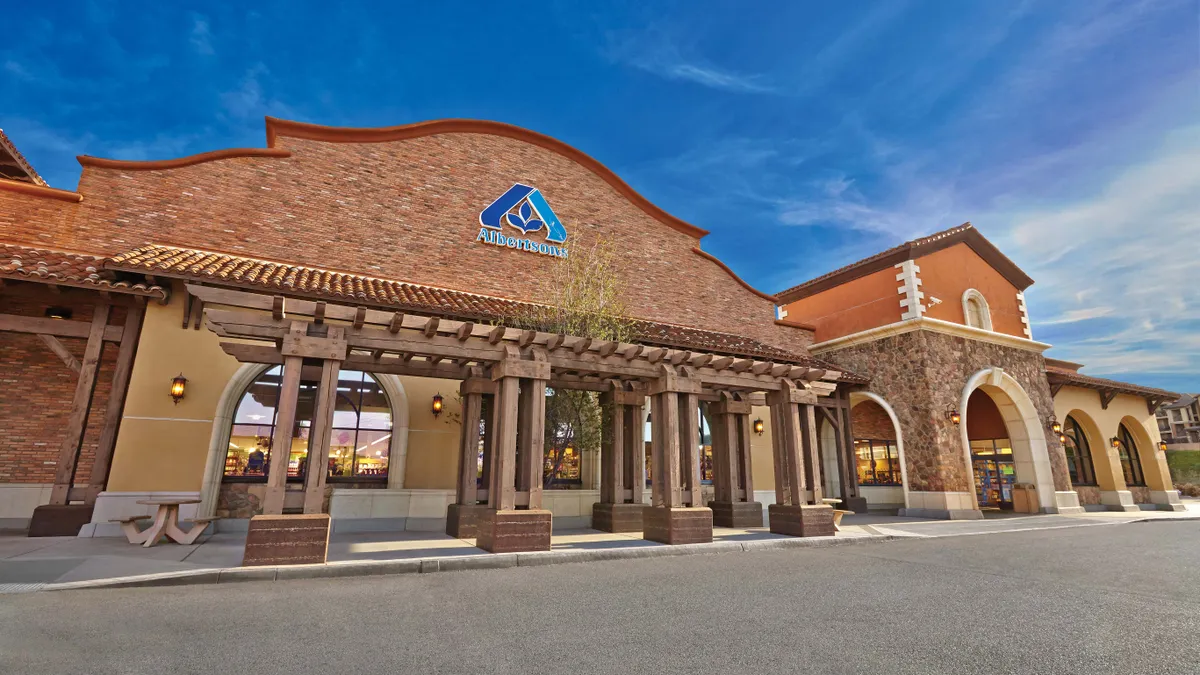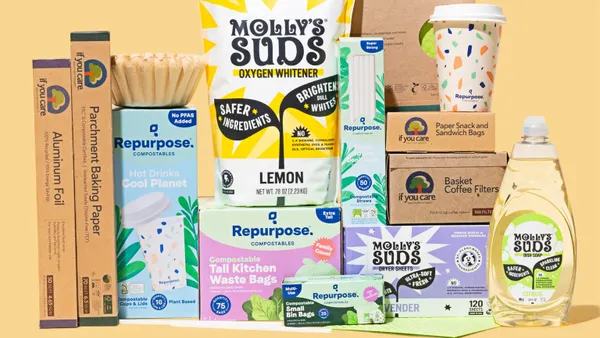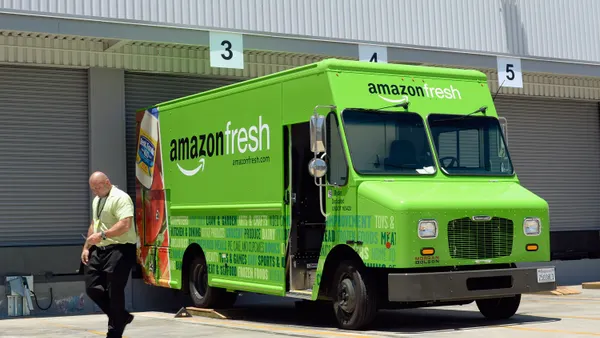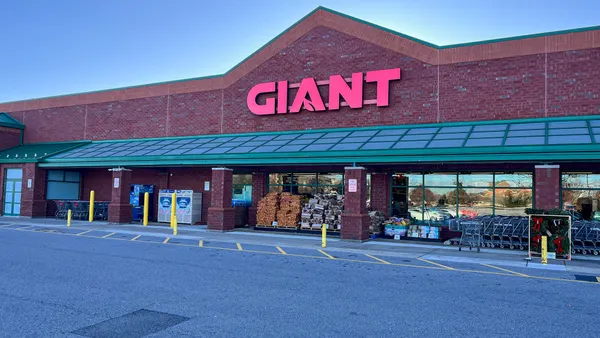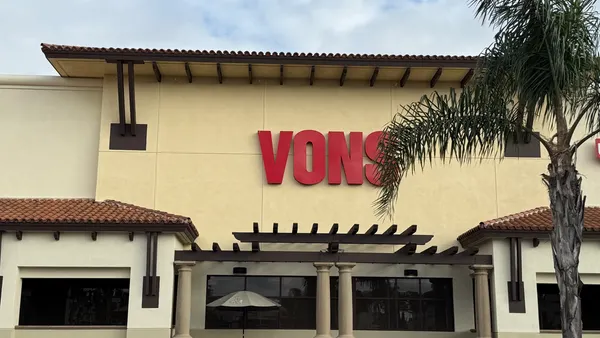Dive Brief:
- Albertsons reported second-quarter earnings on Tuesday that beat Wall Street estimates, with net sales climbing 8.4% year-over-year to $17.9 billion for the period that ended Sept. 12.
- Identical sales increased 7.4% during Q2, driven by retail price inflation, while digital sales increased 36%. Adjusted net income reached $418 million, or 72 cents per share.
- Albertsons’ solid Q2 results point to the ongoing strength of the business as rival Kroger looks to acquire it in a $24.6 billion deal.
Dive Insight:
In its earnings release issued Tuesday morning, Albertsons highlighted the impact of inflation as well as its customer loyalty push on its Q2 results.
"Throughout the quarter, we continued to invest in our digital transformation, our differentiation in Fresh, and the modernization of our capabilities,” CEO Vivek Sankaran said in a statement. “As we look ahead to the balance of the year, we believe we are well-positioned to further accelerate in each of these areas, as we continue to roll out our Customers for Life strategy. With ongoing productivity to support our investments and to cushion inflationary and consumer headwinds, we will continue to prioritize our investments in deepening our relationships with our customers and communities.”
Albertsons did not hold an earnings call or provide a financial outlook on Tuesday in light of Kroger’s acquisition announcement late last week.
The report continues a run of strong results for the grocer amid record-high food prices. During Albertsons’ previous earnings call, Sankaran pointed to the company’s ability to keep shoppers inside its stores with its private label products and targeted promotions.
This coincides with a growing focus on improving its customer loyalty offerings. The Albertsons For U rewards program offers discounts on groceries and gas along with a meal planning and ordering tool. During Q2, Albertsons increased its loyalty program membership by 16%, to $31.8 million.
“Our business model is pivoting to one that is loyalty based, doubling down on our omnichannel engagement with customers beyond just transactions,” Sankaran said during an earnings call in April.
Despite its wins in shopper engagement, higher product and supply chain costs are cutting into the grocer’s margins. Albertsons’ gross margins declined 43 basis points year-over-year in Q2 due to those higher costs as well as increases in picking and delivery costs as well as distributing fewer COVID-19 vaccines.
Albertsons' merger with Kroger would result in greater efficiency across store and digital operations along with lower prices, Kroger executives said last week. However, the deal is expected to come under intense regulatory scrutiny in the months ahead.



